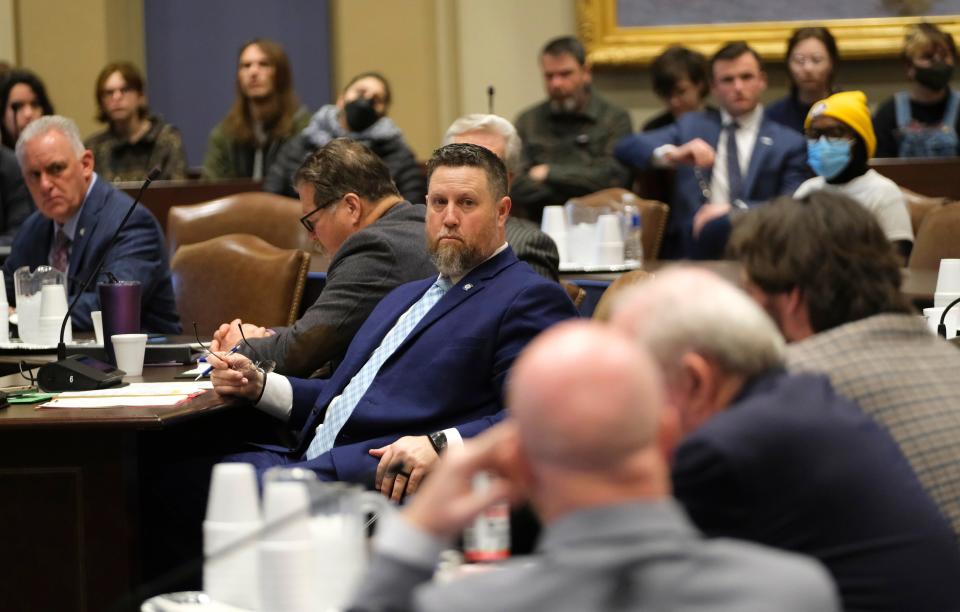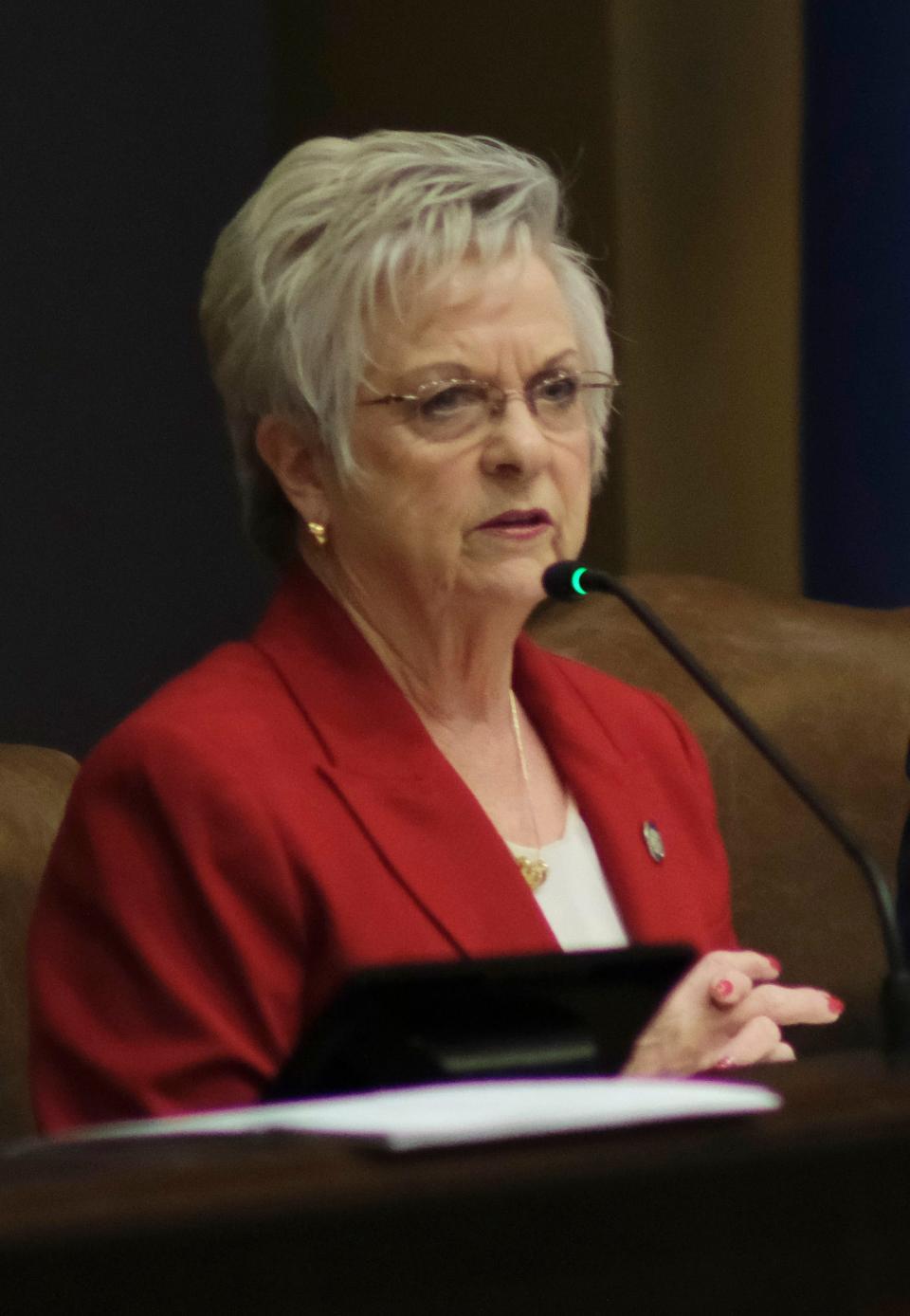Oklahoma Senate committee moves forward bills to restrict transgender transition
An Oklahoma Senate committee moved forward two bills Wednesday aimed at restricting transgender transition, one of them requested by Gov. Kevin Stitt.
Senate Bill 613, introduced by Sen. Julie Daniels, R-Bartlesville, would allow the state to immediately revoke the license of a doctor, nurse practitioner or advanced practice registered nurse who offered gender transition services to minors under the age of 18.
Her bill defines gender transition services as altering physical or anatomical features that are "typical" for a person's biological sex, using puberty-blocking drugs, hormones or gender reassignment surgery.
"So this is true even if the parents have consulted with a physician and with the consulting physician made the determination this is what's best for the child?" asked Senate Democratic Leader Kay Floyd, D-Oklahoma City. "So this Legislature knows better than doctors and parents?"
More:Oklahoma lawmaker wants to ban surgery for some trans adults

Daniels replied that the bill reflects what she believes is the best policy for the state to protect children.
"We're taking this away because we believe this is in the best interest of the child. We are allowing for other forms of treatment, and we certainly hope that parents will remain engaged and use those forms of treatment that are available, and perhaps their child will work through these psychological issues," Daniels said.
While it would prohibit procedures involving surgery or medication, Daniels' bill allows for behavioral and mental health counseling, medication to treat depression and anxiety, drugs to treat delayed or early puberty, treatment of congenital issues and injury.
More:Anti-trans legislation is on the rise, and Oklahoma is part of 'massive uptick'

“The simple fact is that absolute health care bans are bad for Oklahoma. They cost us business, they cost us medical talent, and worst of all, they cost us lives," Floyd said after the vote. "The Oklahoma Legislature does not know better than parents, patients and doctors. Oklahomans have a right to the medical care they need."
In his State of the State message on Monday, Stitt called on lawmakers to send him a bill that closely matches Daniels' proposed legislation. He elaborated on his position during a podcast interview this week.
"This is a very, very small minority of folks," Stitt said. "We're not against any one person, and we believe in freedoms and personal responsibilities, but we have a duty to protect young people."
As the first day of session kicked off Monday, a large crowd of transgender Oklahomans and their allies gathered inside the Capitol to protest the state's push to limit their health care options.
Contrary to false statements made on social media comparing the protest to the violent Jan. 6, 2021, insurrection and attempt to take control of the U.S. Capitol, the protest in Oklahoma City was peaceful and no more disruptive than other demonstrations that frequently happen in and around the building.
As Daniels closed debate on her bill, she appeared to direct remarks at dozens of trans rights supporters who were seated in the committee room.
"On Monday there were people in the building and they were yelling 'trans lives matter.' They absolutely do," said Daniels. "These are troubling issues for individuals to deal with. This is not a rejection of anyone who is dealing with these issues in their lives. This is certainly not a rejection of those who decide, once they reach the age of 18, to pursue additional treatment to help them find themselves in a better place."
Gov. Stitt says:There wasn’t an insurrection at Oklahoma’s capitol
The Senate Rules Committee also moved forward a second bill that would significantly restrict access to transgender health care by blocking public funds to any hospital, entity or individual who provides those services, regardless of the patient's age.
Senate Bill 129 also prohibits transgender medical care at hospitals that indirectly receive public funds. The bill's author, state Sen. David Bullard, R-Durant, said the prohibition would include hospitals on land that is owned by a state or local government.
If the bill becomes law, only privately funded medical professionals and hospitals would be allowed to offer gender reassignment services.
"The point is the taxpayer dollars should not go to something that they disagree with," Bullard said.
Although passed by the Senate Rules Committee on Wednesday, Bullard's bill will receive a second committee hearing because of its budget implications.
The original version of his bill would have banned gender-affirming care for anyone under the age of 26, but that language was replaced before the meeting convened.
Freedom Oklahoma, a nonprofit organization that advocates on behalf of the state's LGBT population, said it's difficult to anticipate the full effect of Bullard's proposal.
"The bill as written proposes putting all facilities and providers in a situation where they would have to choose between accepting any public funding or providing best practice medical care to their transgender patients of any/all ages," said Freedom Oklahoma Executive Director Nicole McAfee. "If the bill moves forward with this framework, it threatens not just health care for transgender Oklahomans, but our broader health care infrastructure try to work out the implications of this policy."
This article originally appeared on Oklahoman: OK bills advance restrictions on public funding of transgender care

